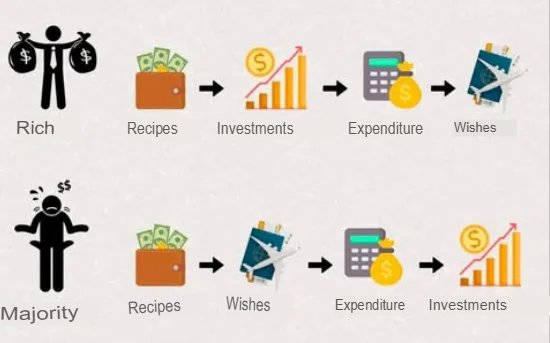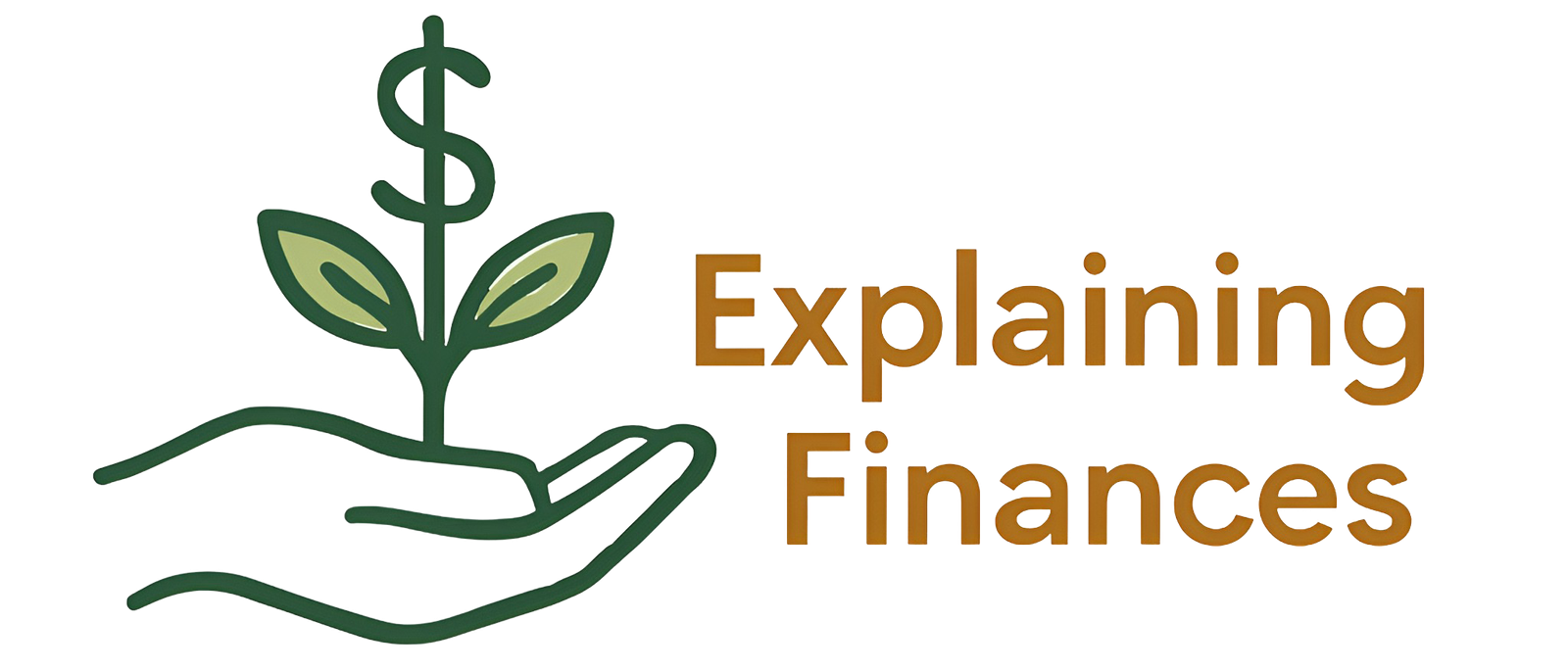Table of Contents
What Is Financial Education and Why Is It Essential for Everyone?
Financial education is the foundation for anyone who wants to take control of their financial life, master their money, and achieve long-term stability. It goes beyond simply spending less than you earn—it includes key concepts such as saving, investing, and future planning. Mastering your money means transforming your financial habits, making conscious choices that align with your personal and professional goals.
A lack of financial knowledge often prevents people from seizing opportunities and solving financial problems effectively. This issue is further exacerbated by a culture of instant gratification and widespread misinformation. Financial education helps change this scenario, enabling individuals to better understand their finances and make informed decisions.
Another crucial aspect is that financial literacy reduces reliance on external solutions, such as excessive borrowing or credit card debt. By adopting smarter financial habits, you create a cycle of financial health that leads to a more balanced and stress-free life.

The Goal and First Steps to Financial Education
The primary goal of financial planning is to ensure that you live within your means while also building a financial cushion for the future. Achieving this requires discipline, organization, and a clear understanding of priorities. Without a well-defined plan, it’s easy to fall into traps like impulse spending and unnecessary debt.
To begin, start by assessing all your income sources and expenses in detail. Identify areas where you are overspending and find ways to cut unnecessary costs. Next, set clear financial goals, such as paying off debt, building an emergency fund, or saving for specific investments.
Another key step is creating a monthly budget. This budget should outline how much you can allocate to essential expenses like housing, transportation, and entertainment. Even a simple plan helps prevent financial surprises and keeps you in control of your money.
Changing Your Mindset: Habits and Beliefs That Transform Your Finances
Pay Yourself First!

Mastering your money requires more than just technical knowledge—it requires a mindset shift. One of the most important habits to develop is prioritizing your financial goals before giving in to immediate desires. This means learning to distinguish between needs and wants.
Developing a critical perspective on your spending is essential. Ask yourself: Does this purchase add real value to my life? This simple reflection helps prevent impulsive buying and fosters a healthier relationship with money.
Another critical shift is eliminating the belief that “there’s never enough money to save.” Small changes in daily habits can free up significant resources for savings. Financial education teaches that every decision matters and that even modest amounts can compound into significant wealth over time.
Building Financial Confidence vs. Financial Freedom
Financial confidence means feeling secure in your ability to manage money effectively in the present, while financial freedom means having enough resources to live comfortably without relying on active income.
Common Money Myths and Limiting Beliefs
The Myth That Money Is Bad
One of the most common limiting beliefs is that money is the root of all evil or that wealthy individuals are inherently greedy. This mindset, often passed down through generations, creates an unconscious aversion to financial success. As a result, many people ignore or sabotage investment opportunities. To overcome this, it’s crucial to recognize that money is simply a tool—a means to achieve personal and societal well-being.
Debt as the Enemy
While excessive and mismanaged debt can be harmful, not all debt is bad. Entrepreneurs and investors often use credit strategically to grow their businesses and increase returns.
The key is distinguishing between “good debt” and “bad debt”:
- Good debt: Funds assets that generate income or appreciate in value, such as real estate investments or education.
- Bad debt: Funds excessive consumption and high-interest expenses, such as credit card debt.
Fear of debt can prevent individuals from leveraging opportunities for growth. Understanding interest rates and credit strategies can turn debt into a powerful financial tool rather than a burden.
Tools and Strategies for Smart Financial Management
With today’s technology, numerous digital tools can simplify financial management. Apps like Mint, YNAB (You Need a Budget), and Personal Capital help track expenses, categorize spending, and provide real-time financial insights. These platforms make financial planning more accessible and effective.
Maintaining a spending record—whether in a notebook or a digital spreadsheet—remains a valuable practice. This clarity allows you to identify spending patterns, cut waste, and find savings opportunities.
Extra Tip: The 50/30/20 Rule

A simple yet effective strategy is the 50/30/20 budgeting method:
- 50% of income: Essential needs (housing, utilities, groceries, transportation)
- 30% of income: Wants and lifestyle expenses
- 20% of income: Savings and investments
This structure helps maintain financial balance while ensuring a reserve for emergencies and long-term goals.
Smart Investing: From Basics to Advanced Strategies
The first step in investing wisely is understanding your investor profile: conservative, moderate, or aggressive. This classification helps determine the best investment types based on your risk tolerance, financial goals, and time horizon.
For beginners, low-risk investment options like high-yield savings accounts, certificates of deposit (CDs), and Treasury bonds provide security and liquidity. These options offer stable returns and are excellent starting points for building wealth.
As you gain experience, you can explore higher-risk, higher-reward investments such as stocks, real estate investment trusts (REITs), and other variable-income assets. However, keep in mind that these investments come with greater volatility and risk.
Most importantly, always diversify your investment portfolio. Putting all your money into a single asset significantly increases risk, while diversification helps mitigate potential losses and maximize long-term gains. A well-balanced portfolio might include fixed-income investments, stocks, real estate, and foreign assets.
Staying informed, keeping up with market trends, and consulting financial professionals are crucial steps toward building a solid and prosperous financial future.
10 Steps to Organizing Your Finances with Financial Education
Managing personal finances may seem overwhelming at first, but with a structured plan, financial stability is within reach. Here are 10 practical steps to help you take control of your financial future:
- List all income sources and monthly expenses.
- Separate fixed costs (rent, bills) from variable expenses (entertainment, shopping).
- Set clear, realistic financial goals.
- Create and track a monthly budget.
- Cut unnecessary spending and prioritize essentials.
- Build an emergency fund covering at least six months of expenses.
- Pay off debts, starting with those with the highest interest rates.
- Learn about investing and start with low-risk options.
- Regularly review your goals and adjust your budget as needed.
- Continuously educate yourself on financial management and investing.
By following these steps, you’ll be on the right track toward achieving financial security and success.
Key Takeaways: Master Your Money
- Financial education is the key to mastering money and achieving economic independence.
- Never invest in something you don’t understand—always seek knowledge first.
- Prioritize assets over liabilities—invest in yourself and financial education.
- Small habit changes lead to significant long-term improvements.
- Planning, discipline, and knowledge are essential for financial success.
- Use practical tools and strategies to simplify money management.
- Buy low, sell high! (applies to stocks, real estate, and all assets).
- Use debt wisely—credit can be powerful but dangerous if mismanaged.
Mastering money is a journey. Each informed step brings you closer to your financial goals. Financial education is your starting point to taking control of your money and transforming your life!
